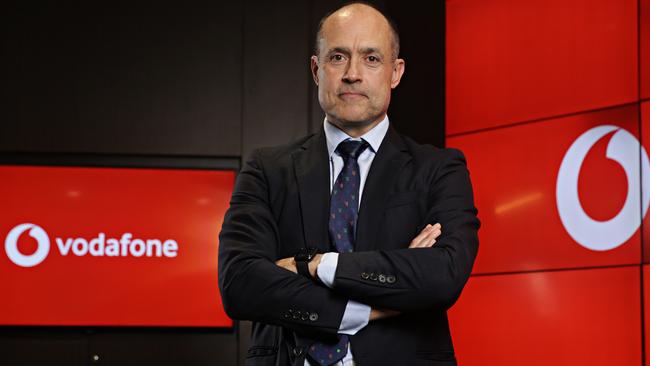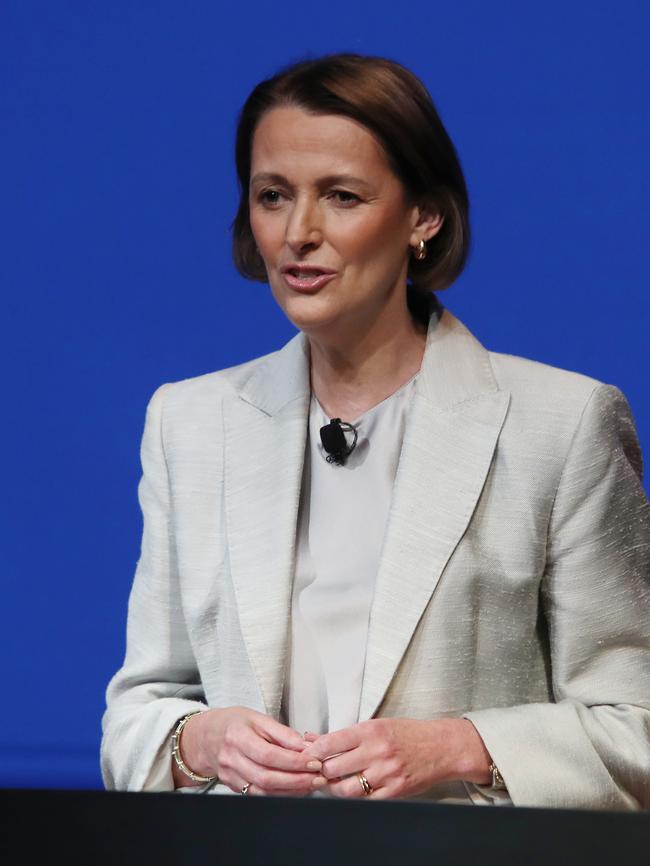‘Make them pay’: TPG takes aim at Meta, other tech giants over universal phone, web access
Australia’s third-biggest telco says big tech companies – including Facebook’s owner, Netflix and Google – should be forced to help pay for universal phone and internet access across the country.

Meta and other technology titans, including Google and Netflix, should be forced to help pay for universal access for phone and web services across Australia as the telecommunications industry faces extreme cost pressures from an explosion in data use across the country, TPG Telecom says.
TPG is the second telco to take aim at big tech after Telstra chief executive Vicki Brady said the company was struggling to keep up with Silicon Valley – which has been pursuing its lucrative enterprise clients – prompting it to axe 2800 staff, or 9 per cent of its workforce.

TPG, Australia’s third’s biggest telco, said mobile network operators were “investing billions in rolling out 5G infrastructure” but customers have “shown limited appetite” to pay more for 5G and 4G services, while big tech companies don’t pay a cent.
“It’s like sending mail without ever having to worry about buying a stamp,” TPG spokesman Mitchell Bingemann said.
“Multinational tech giants reap massive profits from using Australia’s telco networks without ever contributing to the billions of dollars our industry invests every year to upgrade and maintain these critical networks. The current regulatory framework has failed to address or investigate how these over-the-top players can contribute their fair share to ensure our critical infrastructure can stay ahead of demand.”
Mr Bingemann said other countries, including South Korea, Europe, and India, have taken a “proactive stance” and started exploring how tech giants can contribute to funding the rollout of 5G networks and fixed broadband infrastructure.
“Continued investment and the role of regulation is critical to addressing the forecast exponential increase in network demand driven by transformative technologies like artificial intelligence and virtual worlds.”
TPG and its rivals pay various levies and taxes to ensure Australians get universal access to telecommunications. Some of this funding goes to the NBN to provide coverage in areas that otherwise wouldn’t be commercially viable via the Regional Broadband Scheme, while Telstra gets subsidies to maintain their copper network.
In a submission to the federal government about the future of universal telecommunications services, argues the RBS should be scrapped, given the nationwide availability of satellite providers.

Telstra is also pushing for reform, writing in its own submission that it should be freed from the requirement of maintaining an “outdated copper network”, citing the proliferation of “more reliable and more capable” wireless technologies.
TPG said if there continued to be access concerns in more remote parts of Australia, Meta, Google, Netflix and other over the top service operators should be forced to help fund coverage, given the profit from telco infrastructure and various government schemes.
“Given telecommunications providers and by extension consumers contribute to such schemes, it is difficult to make the argument companies which rely upon this infrastructure to reach these consumers should not,” TPG wrote in its submission.
“Levying OTT providers broadens the revenue base of any funding, which has the dual advantages of reducing the volatility of funding, and the distortionary impact given the
levy per service can be lower.”
It also said a levy on OTT operators would ensure the sustainability of universal telco networks, providing a more consistent level of funding.
“TPG Telecom recommends future funding programs are funded from general government revenue where possible. This provides a sustainable source of funding, without impact on the competitive landscape of the telecommunications industry.
“A cautionary tale is the USA’s universal service fund, which is funded by telephone and voice over internet protocol providers. The revenue of these services has declined from approximately $US80bin per annum in the 2000s to less than US$30bn per annum today.
“This has led to the percentage charge on services increasing from 6 per cent in 2001 to approximately 30 per cent in 2022. Future funding agreements should be broader based to avoid such a large impost on individual services.”
But extracting money from tech titans might be easier said than done. Meta – which owns Facebook, Instagram and Meta – walked away from the media bargaining code earlier this year – a move which ripped about $70m a year from Australian newsrooms. It also switched off its news tab last month, sparking fears its platforms will become a hotbed of misinformation. Meta has also blocked news in Canada after Ottawa launched its own version of media bargaining code.

TPG said the amount it contributes to the telecommunications industry levy each year can vary by “millions”. “This creates significant uncertainty and unpredictability, which impacts TPG’s budgeting processes. We are hopeful modernisation of the universal service arrangements will mitigate these issues.”
In its submission, Telstra said it strongly believes the USO should be reformed to take advantage of the new technologies that have recently become available.
“This means removing the requirement for Telstra to use the outdated copper network to deliver USO telephone services in much of regional and remote Australia. Customers in those areas could then be migrated over time to a newer wireless or satellite technology that is more reliable and more capable,” Telstra said.
“No two technologies are the same, and all have strengths and challenges, but newer technologies are better placed to support the demands of regional and remote customers. Wireless technology is less prone than wireline technology to destructive natural forces, including extreme weather events and corrosion.
“There are fewer physical points of potential interruption between the point of transmission and the premises, and less physical exposure to the elements. These new technologies are also superior to copper in that they can deliver high speed data services as well as high quality telephone services.”




To join the conversation, please log in. Don't have an account? Register
Join the conversation, you are commenting as Logout